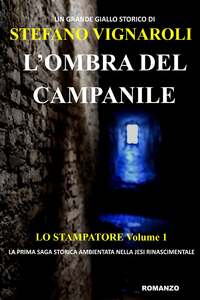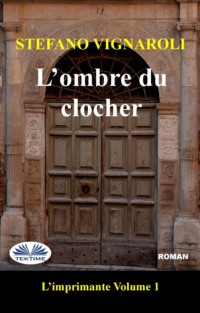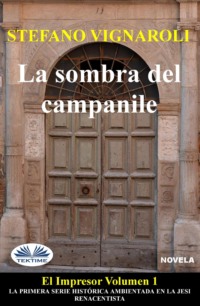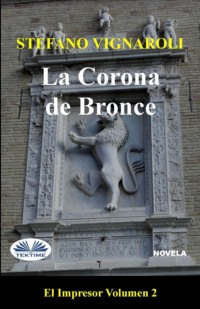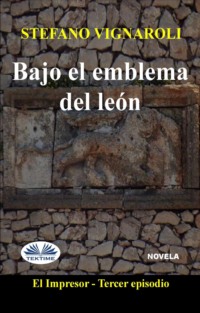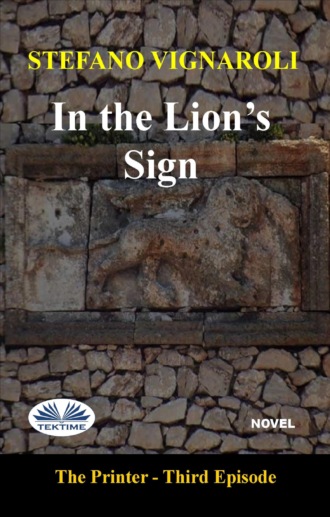
Полная версия
In The Lion's Sign
The servant who had helped him dress, took a silver chalice and had his hands washed with rosewater. Then he invited him to sit at the table. The other servants placed in front of him, in sequence, three trays. In the first one there were some cups, some filled with donkey milk, some with Sicilian orange juice, others with steaming cow’s milk. A second tray contained sweet food, milk bread, donuts, cookies, marzipan, pinocchiate4 , cannoli5 with cream, puffed, arranged in saucers decorated with large salad leaves. The third tray was dedicated to salty foods, anchovies, capers, asparagus, shrimps, accompanied by a cup filled with sturgeon eggs with sugar. Apart, in some jugs, there were wines, from muscatel to trebbiano to fermented sweet wine. Andrea was afraid that, once aboard the galleon, everything in his stomach would go up to his jaws. He would have vomited everything he had ingested. But the scents that tickled his nostrils were too tempting, so he soaked some cookies and two donuts in donkey milk, gobbling behind the cup of warm cow’s milk. He was careful not to touch the salty foods and, above all, the wines. Satisfied, he let out a loud burp, after which he declared himself ready to reach the Venetian boat.
Seen up close, the Venetian ship was really impressive. Andrea had never seen such a large vessel, not even that of the Turkish pirates faced more than a year ago. He noticed with pleasure how the galleon was extremely stable. The waves passed under the hull, but the mammoth ship, in fact, just did not seem to move. His attentive eye did not miss the curious metal panels, which covered the wooden sides of the boat in several places. While trying to understand what they were for, his attention was drawn by the ship’s captain. Tommaso De’ Foscari was hurling himself out of his arms, beckoning the young man to go on board through a comfortable walkway placed between the pier and the left side of the ship. Not without some fear, Andrea reached the bridge, greeting his new companion with a bow. While he was handing the banner to Foscari with the rampant lion, to be hoisted on the flagpole near the other flag representing the lion of St. Marco, he realized that being on top of that ship did not bother him at all. The galleon was a different thing than the one on which he had lost two of his best companions, the Mancino and Fiorano Santoni. The movements due to the lapping of the waters under the hull were not felt at all.
«As you can see, my dear Franciolino, this is one of the best ships in the fleet of the Serenissima Republic», the ship Captain began to explain to him, surrounding his shoulder with an arm. «It’s a very large ship and therefore it is very stable. But at the same time it’s also agile and easy to manoeuvre. In addition to the wind it can be propelled, if necessary, by two orders of rowers. Among the crew, servants, rowers and soldiers, there are more than five hundred men on board. Almost an army. And that’s not all. It’s a very safe ship. I noticed, a little while ago, how you were looking at the metal bulkheads on the sides. They protect the hull from the enemy’s incendiary balls. When needed, they can be lifted, creating a barrier even higher than the walls of the ship itself, and between one bulkhead and another, fire vents can be inserted, bombards capable of throwing explosive projectiles at opponents. But there is even more. On board we have as many as one hundred harquebusiers, men capable of using in an excellent way the new deadly firearm invented by the French. I can’t wait to show you this war machine at work.»
Continuing to speak, the Captain had led Andrea to the bridge, where he had taken the helm, explaining how in marine jargon the front part of the ship was called the bow and the rear stern, the left side port and the right side starboard. Then he began to shout orders to the sailors in order to prepare the ship to sail. The orders, pronounced in strict marine jargon, were completely incomprehensible to Andrea.
Drop anchor - Retract the tires - Lower the mainsail - Drop the pimp - Hoist the foresails, they were all commands whose meaning he did not fully understand. In any case, he could observe how, at each Captain’s command, the crew moved in a fast and precise way, without any uncertainty. In short, the galleon detached itself from the dock and set sail, starting sailing north, with a nice sirocco wind that inflated the sails to the maximum. Foscari held the rudder firmly in his hand and continued to explain to Andrea what he was doing.
«The Adriatic Sea is a closed and also rather narrow sea between the Italian and Dalmatian shores. And therefore it is quite safe. It is unlikely that sudden storms break out, as they do when you cross the ocean to reach the New World. However, we have not to underestimate the fact sometimes the wind turns and becomes dangerous. The “Garbino”6 , the wind that blows from the land, can lift the sea and cause even massive swells. In addition it makes it difficult to steer the ship, as it pushes the boats out to sea. As you can see, we always try to sail rather offshore to avoid the shallows, but always in view of the coast, so that we never lose course. The “Garbino” can fool you, making you lose sight of the coastline and therefore disorienting navigators, especially when the sky is cloudy and you can’t get oriented thanks to the sun and the stars. We sailors fear another wind, the “bura”, the “Buriàn”7 , which brings snow and frost, and blows especially in the winter season. The “bura” is sometimes so strong to sweep away everything it finds, including the sailors on deck who, if they end up in the icy waters, have little hope of surviving.»
«My dear Tommaso», Andrea interrupted him, by now having become familiar with his new friend. «I must confess that I am very afraid of the sea. I don’t even know how to swim and I had a very bad experience last year off the coast of Senigallia. So, I would prefer you to avoid telling me certain details. You already gave me the creeps. If you go on like this, I will be nauseous and then I will be in pain for the rest of the navigation. Today instead I can see a beautiful day, the wind that is caressing us is warm and pleasant, and this ship is so stable that I do not feel any discomfort. Therefore, let me enjoy this voyage, and maybe tell me about your exploits as a warrior. I know that you fought against the Turks on Dalmatian soil... But, what I see there towards the shore is the outline of the Rocca Roveresca? Have we already reached Senigallia?»
«The ship is fast and the wind is favourable. Yes, we have already reached Senigallia. And since you talked about Turks, be ready to meet them, because these waters are infested by Sultan Sèlim’s pirates.»
«I know this very well. Ah, if I could make them pay for what they made me lose a year ago! Two of my best friends lost their lives in the clash with those unfaithful bastards. And I got away with it by a whisker.»
«Excellent, my dear Franciolino. So, if we are going to have to fight them, while I will govern the ship, I’ll leave you to give the orders to gunners and harquebusiers. Now I will explain how.»
The navigation continued quietly until late afternoon. Captain Foscari was about to prepare the galleon to dock at the port of Rimini to spend the night, when a lookout, from his position at the top of the highest mast, shouted: «Pirate ship to starboard! Galleon flying the Turkish flag, in battle trim.»
«It’s Selim!», Andrea whispered to Captain Foscari, already beginning to feel a certain excitement at the idea of the fight.
The Sea Captain shouted some orders in seafaring jargon. Andrea didn’t understand anything, but he could admire again how, at each command, the crew of the ship was moving in perfect synchrony to comply with the will of the captain. In a few moments, the protective metal panels of the right side of the ship were lifted, the fire mouths were loaded and the bomb squad set themselves in combat position. The harquebusiers, instead, loaded their weapons, moved to the left side of the galleon, near the port wall.
«It’ll be yours the honour to order to fire», Foscari said, addressed to Andrea. «But not before the enemy made the first move!»
«Shall we let the pirates attack us? Isn’t that imprudent?»
«You’ll see!»
The conversation between the two was abruptly interrupted by the enemy attack. A little bit of arson balls were set off from the Turkish vessel. Many of them rained in water, extinguishing themselves in a cloud of steam and salt water splashes, several feet away from the Venetian ship. Some balls hit the metal panels, and even these fell into the sea, without causing any damage to the hull. Andrea felt at some point hit by a gush of lukewarm water, lifted by one of the incendiary balls that fell very close to the bridge. Wet as a chick he prepared to order to respond to the fire. The bomb squad had loaded the cannons with explosive balls. Andrea ordered to light the fuses, while his friend Tommaso prepared the next manoeuvre.
«Fire at will! Let’s not give them a chance to adjust the shot», and looked for a solid foothold to hold on tight, foreseeing the recoil due to the simultaneous explosions of at least forty cannons.
But, to his amazement, he saw the blows go off, accompanied by clouds of smoke in correspondence of the fire mouths, without the stability of the galleon being affected more than much. Sure, a little bit the ship began to swing and the fast manoeuvre ordered by the Captain immediately afterwards worsened not a little the condition of Andrea’s stomach. But he had to resist. He could not get seasick. The ship was now pointing fast the bow towards the Turkish galleon. The sails had been lowered, and it was moving only by oars. In fact the manoeuvre had to be precise, one could not rely on the whims of the wind. Two orders of rowers on each side could push the ship at the speed desired at every moment by the captain, through the master of oarsmen, called “subcommittee”. The explosive bullets had done their duty. They had hit the Turkish ship in several places, causing serious damage. The mast had been felled and several leaks had been opened on the hull, which was now leaning on the right side. The pirates were lowering the small boarding boats on the opposite side, towards the open sea, both to abandon the ship that was about to sink, and because they never gave up and would have prepared to assault the Venetian ship. Both Andrea and Tommaso De’ Foscari knew well that the religion of those bastards taught them that to die in battle meant to be assumed in glory by their God. None of them would ever surrender. They would have fought until they all died, but if a single handful of those ruthless pirates had managed to get on board, several men would have lost their lives. Of course, soon the Turks would have been overwhelmed, but they would still have succeeded in claiming numerous victims. And Tommaso would not have wanted to lose even one of his men. Therefore the manoeuvre had to be precise. He drove the ship around the Turkish galleon, so as to be between it and the pirate boats. Andrea could at this point realize how deadly was the new weapon called blunderbuss. The fifty harquebusiers fired in unison against the small boats to the order shouted by Captain Franciolini, just in the moment in which the Sea Captain made him the agreed nod. The men hit by the blunderbusses’ balls were decimated like flies: heads that were pulverized, bodies that were thrown into the water like rag dummies, legs and arms that were torn from logs that were still dying for a short time and then bled to death. While the harquebusiers loaded their weapons again, the surviving pirates threw themselves into the water to try to escape the shot. But the second volley was no less destructive than the first. They were also ordered to fire some explosive balls with cannons, in order to sink the Turkish lifeboats. A few arrows hissed above the heads of Andrea and Tommaso, but none went to score. The harquebusiers and the bomb squad were well protected by the ship’s walls and mobile panels. In the sea they started to outline a reddish blotch, a kind of island of blood, whose inhabitants were fragments of burnt wood and corpses flushed. Luckily Andrea’s attention was turned instead to a single boat that was moving away from the place of the battle. It was a little bigger than the others, it had a small mast with a square sail, above which waved a red flag with a half moon and a white star.
«It’s the Sultan! He is running away with his trusted men», Andrea exclaimed, excited. «Let’s chase him. We could capture him and make him a prisoner. The Duke Della Rovere will certainly be grateful!»
Captain De’ Foscari put an arm around his friend’s shoulder, in an attempt to calm his soul.
«Let’s leave him. It’s not worth the risk. He’s still a dangerous man. We have won the battle. We can continue our journey, now without any more hindrances.»
«But... In a short time he’ll reorganize himself, and return to haunt our seas and terrorize our coastal cities!»
So saying, Andrea lowered his head, a bit mortified. And he saw what he never wanted to see. The blood, the corpses, the pieces of the boats destroyed. This time he couldn’t hold back his stomach. The gagging of vomit rose strongly. The movements of the ship, however slight, were now unbearable. He felt his legs give way. He fell on his knees.
Tommaso called a couple of armigers, who were immediately beside him.
«Take him below deck, to my cabin, and have him lie down in my bunk. He led the assault on the pirates very well, but he is a land fighter. And the blood, in the sea, has a completely different effect. Watch over his rest. I will spend the night here, on the bridge.»
CHAPTER 5
A warrior cannot lower his head,
otherwise he loses sight of the horizon of his dreams.
(Paulo Coelho)
In his awake sleep, lulled by the lapping of the waves, which flowed rhythmically under the hull of the galleon at anchor in the port of Rimini, Andrea’s eyes were filled with the images of the last two months, spent next to his beloved Lucia and the two beautiful girls, to whom he had become attached in a way he would never have believed possible. He loved Lucia, just as he loved Laura, the fruit of their love, just as he loved Anna, who looked so much like her adoptive mother. Certainly there was blood of the Baldeschi family in that little one, even if it had not come out of Lucia’s womb, but from that of a supposed witch who had finished her days in the flames. And the suspicion of who had impregnated that alleged witch had now become a certainty for Andrea. Cardinal Baldeschi, Lucia’s uncle, could not give any other explanation, but now he was dead and could no longer cause them any trouble, as he had done in the past. The mere thought of that grim character gave him the shivers. Not much time had passed since, after having settled all his business in Montefeltro, he left the Counts of Carpegnia and returned to Jesi on a hot day at the end of July. As in the previous occasion, seeing the walls, gates, towers, watch towers and bell towers of his city had aroused in him emotions difficult to contain. But this time he could enter the city with his head held high, strong of a noble title, protected by the Duke of Urbino. And with full rights he could claim to be appointed Captain of the people and to be able to get married with his betrothed.
After a brief stop at his father’s palace, just to freshen up and change his clothes, he rushed to the country residence of the Counts Baldeschi. He knew well, in fact, he would not find Lucia in the Palazzo del Governo, nor much less in the Baldeschi Palace in Piazza San Floriano. He had presented himself to the servants and made himself announced to the landlady. Lucia had been waiting a long time, but when she had crossed the threshold of the hall on the ground floor, Andrea was struck by her radiant beauty, as if it was the first time he saw her. She was wearing a green silk “gamurra”, which highlighted her feminine lines and features. Her hazel eyes, in the center of her pale face, were almost fixed on him. They were sweet and penetrating at the same time. The neckline of his dress generously showed his shoulders and the dimple between his breasts, his skin as light as milk. A necklace of white pearls adorned her neck and the hairstyle of her hair was designed to do justice to the beautiful face of the lady. The cascade of dark hair was pulled back by a braid that surrounded the nape of the neck, so as to leave the forehead completely uncovered. In the perfectly oval face, with delicate features, the lips stood out of an unnatural vermilion, given by the colour obtained from poppy flowers. The eyebrows just mentioned and the high, spacious forehead gave her the appearance of a real Lady. At her hips, one on each side, the two little girls of about six years old, completely similar to her in appearance, bearing and hairstyle, held her gently by the hand. The only differences between the two girls were the height and colour of their hair, one a little taller, long and with wavy blond hair, the other a little lower and with straight black hair, shaved at the top of the head to emphasize the width of the forehead. Andrea had understood, already from the other time he had glimpsed the girls playing in the garden of that same villa, that his daughter had to be the blonde. Without taking anything away from the brunette, she was a beautiful little girl and had two heavenly eyes just like his. Lucia had sent the girls to sit on a sofa and had brought her right hand to the knight, who taking it in his hands, had knelt down and kissed it.
«Up, up! Get up!», Lucia had told him, the cheeks that were getting inflamed. As he got up, Andrea found himself with his face at a very short distance from her. The impulse had been to bring his lips closer to hers and kiss her for a long time, but he had to hold back because of the presence of the servants, but especially the two girls.
The two remained like that, for a while, staring into each other’s eyes, without uttering a word. Then Andrea cleared his voice.
«Your hazel eyes. I think I saw them the last time behind a raised concealed. It was you the day of the tournament in Urbino. I’m sure of it. I recognized your eyes. Of the same colour, there are no others in the world. It was you who saved my life, who blocked Masio. And I just do not understand, I do not understand how a bridesmaid, as beautiful and delicate as you, had the strength and courage to intervene in a manner worthy of a man of arms.»
«You must still know me well, Messer Franciolino - or can I still call you Andrea? - In any case, behind the facade of femininity, I’ve always been able to assert myself, even in situations that required not only strength, but also cunning, brains and reasoning. And no one has ever managed to trick the here present Countess Lucia Baldeschi. And I assure you that many have tried.»
«I imagine that these years for you, here in the city, have not been easy. I know you have taken on some very important responsibilities. And I know you have done it very well. They also told me you are a daredevil, and more than once you have ventured on dangerous journeys, and moreover without an escort. A very risky thing for a lady of your rank.»
To these words, Lucia had lowered her gaze, sighing. Andrea, having understood to have touched a perhaps painful button for his beloved, had brought back the speech on a different plan.
«Of course, after the events of Urbino, I would have expected to find you at my side, to be assisted by your loving care, as at the time of the sack of Jesi. Instead I found myself in a remote and solitary castle, with the only company of two gruff mountain Counts, and a small handful of their servants.»
«I made me sure someone were taken care of you, but I could not stay in Montefeltro. I had come all the way there undercover, just to see you. And now that you are well, I am waiting for you to...»
«But of course, of course, you are absolutely right», and he prostrated himself again at the feet of his beloved, taking his hand between hers. «I humbly apologize to you for having dwelt in useless chatter. The purpose of my presence here is one and only one. That of proposing myself as your husband. It’s strange having to ask you directly, usually the hand of a lady is asked for through the intercession of her parent, or her guardian. But better this way. I am ready to declare my immense love to you, and I believe that your heart is also beating strong for this knight, as you have made me understand many times.»
Lucia ordered him to get up for the second time. Andrea stood up, continuing to hold her hand. He could smell the scent of rose water, which was making him intoxicated, almost drunk. Once again he had the instinct to kiss her. He gently moved his torso closer to her, until he felt the pressure of her breasts against his chest. He touched her cheek with his lips, in a very light, almost imperceptible kiss. Lucia retracted a little.
«And you got it right. Yes, I’m ready to marry you, on one condition only, that you want to be the father of both girls.»
«And this is granted. I want to be. They are two marvellous girls and, as far as I can see, already well educated. We must give them credit for this.»
«I think it’s good to say goodbye now. You must visit our beloved Bishop, Cardinal Ghislieri, and make arrangements with him for the wedding ceremony. I will be willing to abide by whatever the Cardinal may wish to arrange. Go, now!»
The Venetian ship, as stable as it was, was more subject to rolling and pitching movements as it approached the coast. The manoeuvres due to the docking, moreover, accentuated said movements, as well as awakened the nausea and the headache of Andrea. From the sailors’ voices, he understood that they were approaching Marina di Ravenna. From the small window of the captain’s cabin you could see a thick pine forest to frame the coast. As he pulled himself up from his bunk, he banged his head on the ceiling of the cabin, which, although one of the highest, located between the second and third aft decks, was always lower than its height. Just as he was fighting a gagging gag, trying to swallow the bile coming up from his stomach, the Sea Captain entered the cabin.
«We’ll stop here, at Marina di Ravenna, for a few days, in order to supply the ship with food and ammunition. It will take another two days until the Delta of the Po River, then we’ll sail up the Po River to Mantua. From here to Mantua, the journey will be much less easy than it has been until now. Especially the river navigation will create many problems. We’ll be able to find shallows, narrower stretches of rivers, in short, it will not be easy to reach our destination with such a large ship. Take my advice, disembark here. I will get you horses and an escort. By land, you will reach Ferrara, where you’ll be a guest for a few days of the Duke of Este, our friend and ally. From Ferrara to Mantua the road is not long. I will send you a messenger as soon as our ship has arrived in the city of Gonzaga and we’ll meet there.»
Andrea was relieved of the proposal. He couldn’t wait to disembark and finally jump on a horse.
CHAPTER 6
Beauty will save the world
(Fedor Dostoevsky)
Muddy up to his neck, Andrea had his forehead beaded with sweat, despite the stinging cold of the beginning of a winter that, in fast steps, would open the doors to the year 2019. The municipal administration had been clear. By the following spring, Piazza Colocci had to be restored and the archaeological excavations, which had brought to light the remains of the lower floors of the old Government Palace, would be buried. Everything had already been photographed, the main finds transferred to the new archaeological museum, on the ground floor of the Pianetti-Tesei Palace, and by then it had been given too much time to citizens, tourists and curious people to take a peek, completely free, at the uncovered square. But Andrea was not satisfied, he did not give up. Down there, at a lower level, there must have been the remains of the ancient Roman amphitheatre. Evidence of this were the ancient balls of the “ball game”, an ancient discipline dating back to Roman times. This game, also known as Harpastum, or spherical ball game, was an integral part of the training of gladiators and was played mainly by legions to guard the borders. According to Andrea, the balls found about twenty years earlier at the bottom of the well in the inner courtyard of the Palazzo della Signoria were not referable to the eighteenth-century game of tennis court, as had been asserted so far. They were instead the testimony that in that area took place, between the first century B.C. and the third century A.D., games in which gladiators and slaves were involved, in the same way as those that could be seen in Rome inside the Coliseum. Of course, he could not go down to the bottom of the well to break through its walls, but according to him a passage from the rooms of the ancient Government Palace to the levels below had to be there. Everything was there to find him. The very expensive radar surveys that he had carried out completely at his own expense proved him right, but every time he thought he was close to the sensational discovery of the possible passage there was something that went wrong. There were sewer manifolds that could not be touched except at the risk of flooding everything, there were metal bulkheads to protect and consolidate the foundations of the Palazzo della Signoria. Here remains of fireplaces, which could not be touched except by unleashing the wrath of the delegate for Cultural and Artistic Heritage. And now there was also snow. Since December 8, an early but heavy snowfall had prevented him from working for a few days. Then, when the snow had melted, it had left so much mud that it was almost impossible to stand upright in the excavations without sliding continuously. Irritated, cold, with nerves on edge, he lifted the pickaxe. He would have given a dry picket to the back wall, the one that separated the old government building from the foundations of the present one, finished building around the year 1500, but he stopped with his arm in the air. Something had attracted the attention of his eyes. The mud, draining downwards, had left uncovered a detail he had never noticed before. A vaulted arch limited by the ancient bricks, almost at the top of the ground he was trampling on and representing the floor of the ground floor of that ancient building, undoubtedly delimited an opening, even if it was occluded by debris and semi-basement.


